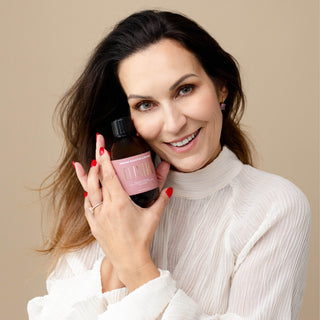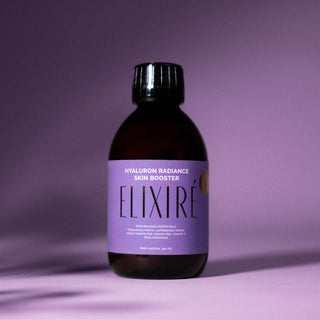What is COLLAGEN and why do we need it?
- Type I: Found in the skin, bones, and connective tissue, this type is responsible for the firmness and elasticity of the skin.
- Type II: Present in cartilage, where it ensures joint health and mobility.
- Type III: Important for the elasticity of the skin, blood vessels and internal organs. (1*)
How is the lack COLLAGEN but does it affect the body?
Reducing the level
- Dry and less elastic skin with wrinkles.
- Brittle nails and hair loss.
- Joint pain and reduced mobility.
- Increased vulnerability of bones to fractures.
In addition to natural aging, the decline
Benefits of consumption COLLAGEN a
Regular consumption
- For the skin: Increases elasticity, hydration and reduces the visibility of wrinkles.
- For conclusions: It allows for better cartilage regeneration and reduces pain.
- For hair and nails: Strengthens hair and prevents splitting nails.
- For muscles and bones: Promotes muscle growth and maintains bone strength. (2*)
How to increase natural production COLLAGEN huh?
Although natural production
- Eating foods rich in
COLLAGEN oh: Bone broths, egg whites, and chicken are rich natural sources. - Vitamin C: This vitamin promotes the synthesis
COLLAGEN and is found in citrus fruits, peppers, and broccoli. - Avoiding harmful factors: Excessive sun exposure and smoking are damaging
COLLAGEN ska fibers. - Dietary supplements:
HYDROLYZED COLLAGEN is a great way to quickly replenish the deficiency.
How to choose the right one COLLAGEN ?
There are several types of dietary supplements available with
-
HYDROLYZED COLLAGEN : Easier to digest and ideal for general body regeneration. - Marine
COLLAGEN : Contains high concentrationsCOLLAGEN a type I, which is especially beneficial for the skin. -
COLLAGEN with accessories: CombinationCOLLAGEN with vitamin C or hyaluronic acid increases effectiveness.
Literature (*):
- Source: Collagens--structure, function, and biosynthesis (K: Gelse, E. Poschl, T.Aigner), http://pubmed.ncbi.nlm.nih.gov/14623400/
- Source: An overview of the beneficial effects of hydrolysed collagen intake on joint and bone health and on skin aging (TF Juher, EB Perez), http://pubmed.ncbi.nlm.nih.gov/26267777/









